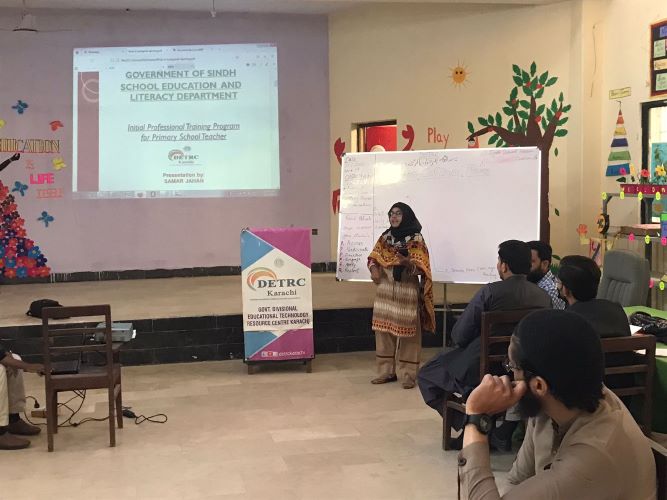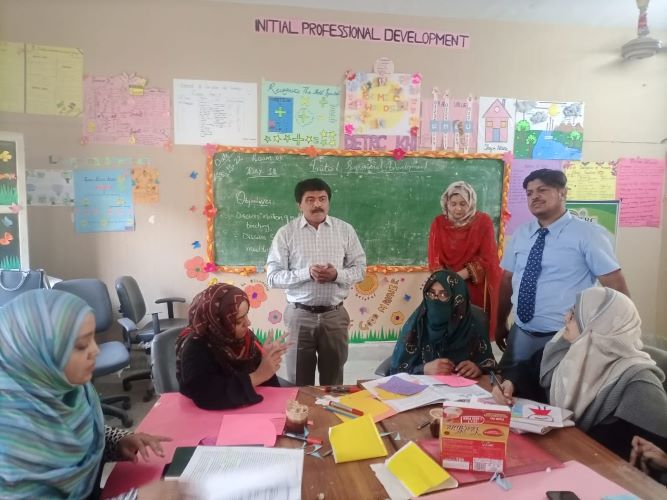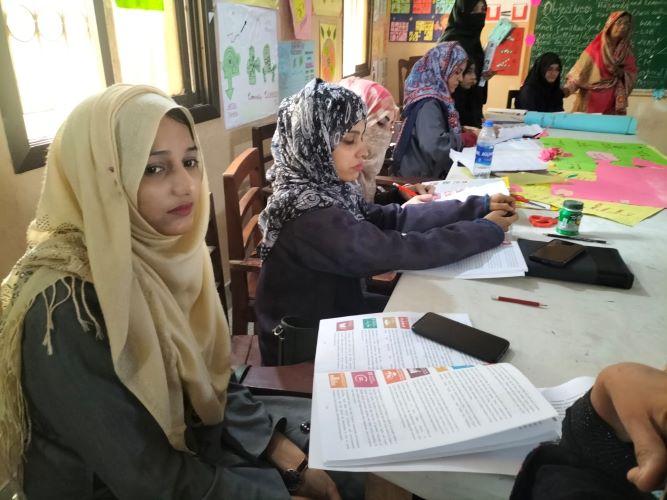
Most of the trainers hired for teachers’ training are not well-trained themselves
Kamran Akhtar Siddiqui
In the 21st century, a teacher’s role has changed from that of ‘a sage in the classes’ to ‘a facilitator’ who creates a conducive environment for students’ learning. Unfortunately, teachers from public sector educational institutes are incapable to play this role. They practice teacher-centric pedagogy, focus more on content and less on skills development. Therefore, upskilling the teachers comes as a suggestion time and again. While the suggestion is absolutely pertinent, upskilling teachers is impossible without addressing the ground realities.
Related report: Sindh govt. introduces Teaching License Policy
The first reality is lack of funds. With meagre budget of 1.7% of GDP, it needs a magic wand to equip teachers with modern pedagogical and digital skills. Since well-qualified and professional trainers charge high fees, most of the trainers hired for teachers’ training are not well-trained themselves. They are either senior teachers of the same region or trainers from public sector teacher training institutes. In most cases, these trainings are induction/pre-service and not in-service. Moreover, often times the center supervisors are seen struggling with providing necessary stationery to the trainers. Lack of budget is often quoted as a major reason behind these practices.
Related report: Sindh’s 4 Teachers’ Training Colleges handed over to private sector

If the public sector education has to change, sufficient fund allocation and research are must
Another reality is lack of research. When these teacher training programs are planned and executed, no research is conducted in most cases. Trainings must be preceded by needs assessment and succeeded by follow-up research. The former gives an idea of what kind of training is required and the latter gives insights into the impact of training on ground i.e. classroom. Since no prior research is conducted, the trainings are general for all subject teachers. Thus, they do not contribute significantly to improving classroom teaching practices.
Related report: Teachers’ Licensing Policy will apply on both public and private sector
Even if teachers learn something from those training sessions, only a few implement the strategies knowing that there is no check on them. Therefore, most of the takeaways are either forgotten or gradually go out of practice leaving the system barely changed.

Sometimes it is argued that teachers can make use of digital technology to upskill themselves. They should do online courses to keep them up-to-date. The idea is valuable one. But a major problem with this idea is foreign language. Most of the online courses are offered in English. Research studies show that government teachers lack proficiency to teach [basic school courses] in English. Asking them to do online courses in English is too much for them. It is because of the fact that these teachers prefer face-to-face trainings to online sessions.
Related report: Licensing and lassitude
If the public sector education has to change, sufficient fund allocation and research are must. Plus, contextualized training programs on modern teaching will do better than programs offered by foreign universities. If seriously-thought steps are not taken, the teachers’ practices will remain unchanged, students’ performance will remain same and pupils won’t gain anything.
________________
Kamran Akhtar Siddiqui is a faculty member at Sukkur IBA University, Sukkur Sindh